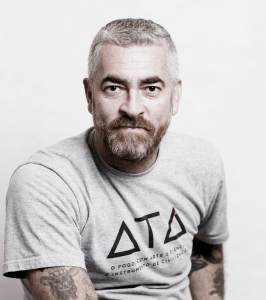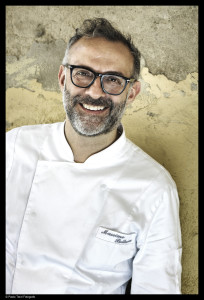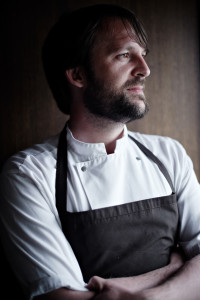
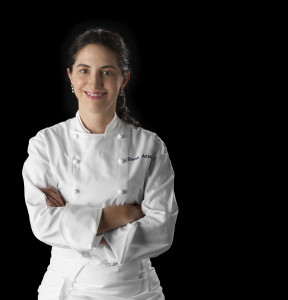
A new international prize was launched today that will recognize one chef who has made an exceptional contribution to “improving society through gastronomy.” It will be judged by many of the world’s most influential chefs, aided by leading experts from other disciplines. The Basque Culinary World Prize will be an achievement award held annually that will celebrate a chef of any nationality who demonstrates how gastronomy can be a powerful force for change: those men or women whose impact can be felt “beyond the kitchen”. The winner will have improved society in some way through gastronomy. This could be through culinary innovation, a commitment to social responsibility, sustainability or the economic development of their community; involvement in health or environmental campaigns, the promotion of pioneering cultural projects, or works that benefit society through their positive impact on the food industry. To be considered for the prize, chefs have to be nominated online by a professional from the world of gastronomy. The winner will receive €100,000 to devote to a project of their choice that demonstrates the wider role of gastronomy in society. The Prize will be awarded by the Basque Culinary Center (BCC) in San Sebastian, a world leading academic institution in gastronomy, and will be promoted by the Basque Government under the
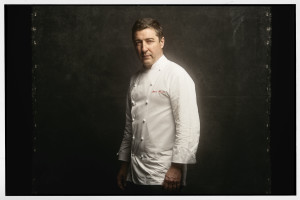
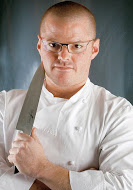
Euskadi-Basque Country Strategy. The inaugural Basque Culinary World Prize will be judged by the chefs on the International Council of the Basque Culinary Center chaired by Joan Roca (Spain): Gastón Acurio (Peru), Ferran Adrià (Spain), Alex Atala (Brazil), Dan Barber (US), Heston Blumenthal (UK), Massimo Bottura (Italy), Michel Bras (France), Yukio Hattori (Japan), Enrique Olvera (Mexico) and René Redzepi (Denmark). To judge the prize, the Council will be joined by leading experts in related disciplines, including US food scientist and writer Harold McGee; Massimo Montanari, a professor of Medieval History at Bologna University and one of the leading world experts in Food Studies; renowned novelist Laura Esquivel; and Hilal Elver, Special Rapporteur on the Right to Food for the United Nations High Commissioner for Human Rights (OHCHR). Members of the Prize Committee for 2016 also include Elena Arzak, one of the most celebrated female chefs in the world and head chef at Michelin-starred Ametsa in London; Dr F. Xavier Medina, a social anthropologist and leading scholar of Food and Culture; Frédéric Duhart, an expert in anthropology and the history of food; and Marta Miguel Castro, an expert in food science. The decision on the winner of the Basque World Culinary Prize will be announced on July 2016.
What does this award mean for the members of the jury?
We believe the world of gastronomy can have a positive influence on society when chefs take on the responsibilities that come with having a public voice. Our aim is to uncover examples of great work that has made a difference from chefs around the world, whether they are known or unknown. Joxe Mari Aizega, Head of the Basque Culinary Center.
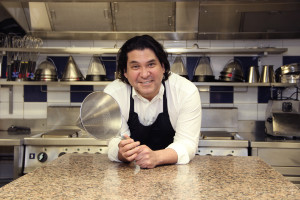
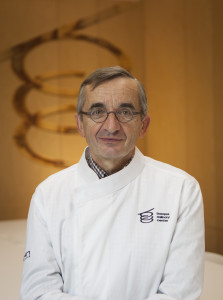
The Basque Culinary World Prize will identify men and women working in gastronomy and striving to excel. The innovative, creative, determined – and sometimes impetuous – trailblazers who are engaged with their community and demonstrate every day how gastronomy can be an engine for transformation. Joan Roca, Chair of the International Council of the BCC, Chair of the Jury of the Basque Culinary World Prize, and founder of the three-Michelin-starred restaurant, El Celler de Can Roca.
Cooking is not an end in itself, but a pathway to achieve more important things. It has real power to transform society because it touches everything: education, the environment, entrepreneurship, cultural identity, agriculture, trade. For a long time, that power has not been well understood. Today, finally it is. The kitchen has proven to be a powerful engine for change. Therefore, chefs must be committed and aware of the possibility they have to help create a more just, generous and sustainable society. Gastón Acurio, credited with the worldwide revolution in Peruvian cuisine, runs over 40 restaurants worldwide.

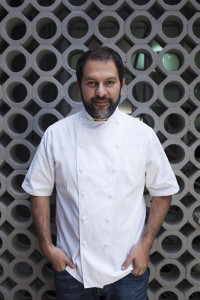
Because I am convinced that culture, knowledge, consciousness and a sense of responsibility are the basics for the chef of the future, I am proud to be part of this prize, hoping it will inspire and mobilize those who want to make a difference by committing themselves to society. Massimo Bottura, chef patron of three Michelin-starred Osteria Francescana, Modena, Italy.
Cuisine is life: we cannot forget that. That is the reason I love seeing that some chefs trace their vocation back to their sense of humanity. I find this amazing, because it is not something ephemeral: it is the future of cuisine. Today’s chefs are wise to have set out on this path. Michel Bras, chef patron of three-Michelin starred hotel restaurant Bras, Aubrac, France.
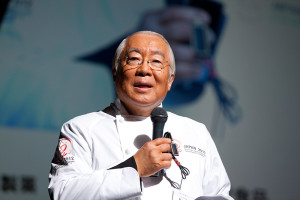
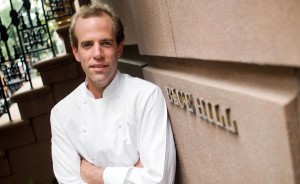
A growing number of chefs have joined the ranks of activists advancing the agenda of changing our food system… Today’s food culture has given chefs a platform of influence, including the power, if not the luxury, to innovate. As arbiters of taste, we can help inspire a Third Plate, a new way of eating that puts it all together. Dan Barber, chef, writer and founder of the Michelin-starred Blue Hill restaurant in Manhattan.
Cooking means respecting rules, acting properly, working together. That’s why cooking is the perfect way to understand how life works. Massimo Montanari, professor of Mediaeval History and History Food at the University of Bologna.
